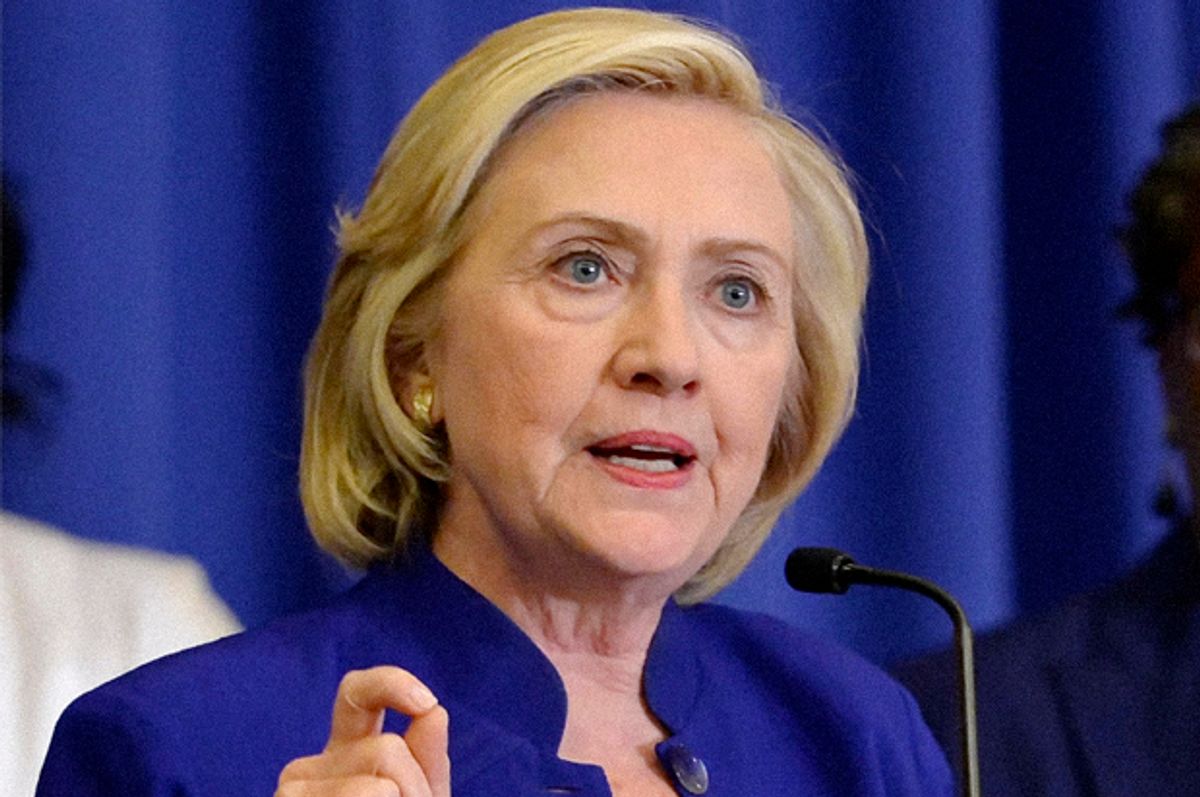Breaking her years-long silence on an issue that has galvanized climate activists, Democratic presidential candidate Hillary Clinton came out against construction of the Keystone XL oil pipeline on Tuesday -- marking a reversal of the position she seemed to hold as secretary of state and underscoring the issue's resonance among the progressive voters Clinton needs to secure her party's nod.
Speaking in Des Moines, Clinton reiterated that she had not taken a public position on the project because she did not want to interfere with the Obama administration's deliberations over whether to approve the pipeline, which would transport oil from the tar sands of Canada to the Gulf of Mexico. But given the administration's persistent delays in announcing a decision on Keystone, Clinton said she now felt a "responsibility" to speak out.
"I think it is imperative that we look at the Keystone pipeline as what I believe it is -- a distraction from important work we have to do on climate change," Clinton said. "And unfortunately, from my perspective, one that interferes with our ability to move forward with all the other issues. Therefore, I oppose it."
That marks something of a turnabout from Clinton's position when she was the nation's top diplomat. In 2010, Clinton said that she was "inclined" to approve the project because the United States was "either going to be dependent on dirty oil from the Gulf or dirty oil from Canada" until renewable energy was brought to scale.
The State Department has authority over the project's construction because it crosses international borders.
While Clinton had remained mum on the issue after leaving Foggy Bottom, climate change activists viewed with dismay Clinton's hire this summer of a former lobbyist for the company behind Keystone. Moreover, a report earlier this year found that the Canadian government agency tasked with lobbying for the pipeline had contributed nearly $500,000 to the Clinton family foundation.
Though no serious observer expected Clinton to come out for the Keystone pipeline amid an increasingly competitive Democratic primary contest with Bernie Sanders, climate activists and political analysts found it bizarre that Clinton had cited ongoing deliberations as a reason not to comment on this particular issue, even as she took stances on numerous other issues whose fates had yet to be determined.
But leading primary rival Bernie Sanders campaigned hard against the pipeline -- a factor in Friends of the Earth's recent decision to endorse the Vermont senator -- and Sanders rising in polls of Iowa and New Hampshire voters, Clinton could no longer afford to be outflanked on her left, and she had displayed increasing public frustration in recent months with the administration's failure to make a decision on Keystone.
“I can't wait too much longer. And I am putting the White House on notice. I am going to tell you what I think soon because I can’t wait," Clinton said last week.
The League of Conservation Voters was quick to praise Clinton's announcement Tuesday.
"We are thrilled that Secretary Clinton has continued to build on her longtime environmental leadership by publicly opposing the dirty and dangerous Keystone XL tar sands pipeline. This is exactly the kind of leadership we need in order to leave a healthy planet for our children and grandchildren," Tiernan Sittenfeld, the group's senior vice president for government affairs, said in a statement. "It is more clear than ever that pumping the dirtiest oil on the planet across America's heartland so that it can be shipped overseas would take our country in the exact wrong direction. Secretary Clinton's recent clean energy proposal, coupled with her opposition to drilling in the Arctic Ocean and now to Keystone XL, is both inspiring and exciting."
Clinton's announcement coincides with the arrival in the U.S. of Pope Francis, who has made combatting climate change a centerpiece of his papacy.



Shares